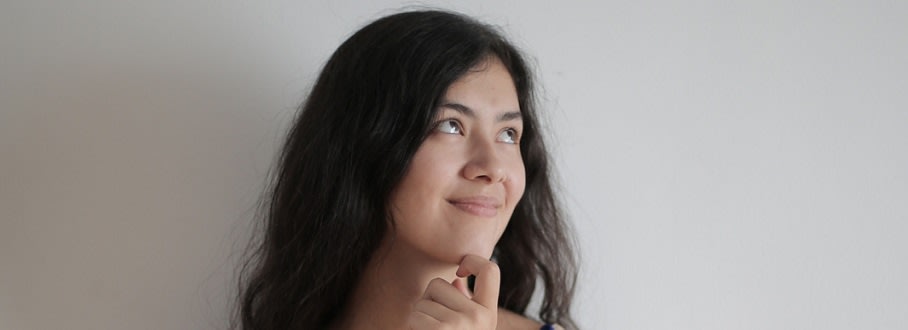What to Ask at Your PhD Interview
It's the last part of a typical PhD interview, and probably the last thing you think of preparing for. But the opportunity to find out more about a particular PhD opportunity is an invaluable part of the PhD application process. What's more, asking good questions of your own can impress the panel as much as having good answers for theirs.
The very best questions to ask will depend on your project and what you want to know about the university, but we've put together some pointers below.
First though, let's explain why this stuff matters (more than you probably think).
Why you should ask good questions at a PhD interview
Most PhD interviews end with the panel asking the candidate if they have any questions of their own. It may be tempting to mumble a quick "no, thank you" and get out of the room as quickly as possible, but here are three reasons why you should take the opportunity to ask at least a couple of questions:
- Fleeing the interview room is never a good look – Let's say you don't think the interview has gone well. Maybe you've felt nervous. Maybe you're not sure you've said the right things. Chances are it's nowhere near as bad as you think (interviews are like that) but still: asking good questions of your own is a way to instantly re-assert some confidence, say something impressive and improve the way you come across. Bailing out definitely isn't.
- It's the best way to demonstrate enthusiasm and engagement – This is your chance to show off how much preparation you've done, how much you care about the project and how much you really want this PhD. Remember: everyone tries to have intelligent answers for the questions they're asked, but not everyone asks an intelligent question of their own. Be the person who does.
- People will answer them – It's obvious when you think about it, but you can be forgiven for thinking about other things instead. Chances are there's at least something you want to know about the university, project or supervisor. After all, you may be interviewing for more than one PhD. Something may also have come up during the interview that you'd like to probe further. Now's the best time to get answers.
So, asking questions at a PhD interview is definitely a good idea. Now let's think about what to ask.
#1 Where do you see this project / research area going in future?
This is a good general question that does two things: it demonstrates that you're interested in more than just getting a place / winning some funding, and it can lead to some useful answers.
Research is changing all the time (that's the point) and no finished PhD thesis is exactly the same as the proposal it's based on. Getting some expert 'insider perspective' is only going to be helpful at this point, regardless of where you end up studying.
Chances are, by the way, that this is a question the panel might ask you. That's fine, if so. Just rephrase accordingly or be explicit that you're interested in their thoughts too.
#2 Is the university involved in (or hosting) any upcoming conferences / events for this field?
You can file this under 'useful stuff to know' but it's also another question that shows enthusiasm and engagement. Universities with a strong research presence in a particular field will often be involved in hosting full conference events, or invited guest lectures etc, but they won't generally advertise this kind of activity to prospective PhD students (perhaps they should).
As well as being interesting to attend, there are often opportunities for postgraduates to get involved with these events, gaining valuable extra-curricular experience (and potentially waiving the conference fee).
#3 How many other students are you supervising / are currently in the research group?
Here's another thing that won't necessarily be obvious during your application, is interesting to know and definitely fine to ask about.
The actual presence of other students means different things in different subjects, but, on the whole, it's nice to have the opportunity to work with fellow postgraduates.
#4 Are there any problems or obstacles you forsee for my project?
This is one for a prospective supervisor, rather than an admissions tutor or funding representative (each of whom could also be present at a typical PhD interview). Again, it provides useful feedback regardless of whether you end up winning (or taking up) this place. It also demonstrates that you're thinking realistically about the challenges involved in a PhD.
#5 What will my supervision arrangements be like?
If you don't already know this, definitely feel free to ask about it. Whilst it's possible to generalise about the PhD supervision process, the actual routines are as varied as the people involved.
Ask how often your supervisor typically 'meets with' their students (whether face-to-face or otherwise), how often they expect to read and feedback on work, etc. Again, this shows that you're serious and thinking about the detail. It's also useful to know and potentially compare with answers from elsewhere: remember, you're trying to find a PhD routine that works for you too.
#6 How many other students are you interviewing?
PhD places tend to be competitively awarded when there's funding involved, or the number of applicants exceeds the capacity of the university or department to supervise them. Generally speaking, the former is more likely; if you're applying to self-fund you'll generally get a place if there's space (assuming you meet the general eligiblity criteria for a PhD).
Still, it can be useful to know how many other students you might be 'up against' or simply applying alongside. And, as with most things here, it's fine to ask.
#7 Will there opportunities for funding / additional support during my PhD?
This probably shouldn't be the only thing you ask (it's a bit like applying for a job and only showing any interest in the salary) but it's useful to inquire. Plenty of universities offer some form of funding during a PhD, even if that's just for research expenses, conference travel, income from teaching, etc. Speaking of which. . .
#8 Will there be opportunities for teaching / other professional development during my PhD?
You can probably assume that the answer to this is "yes", as most universities give students the chance to teach during a PhD. Approaches to this differ though and the availability of teaching (or other work) can depend on all sorts of factors, including the number of other students (see above). There's nothing wrong with asking how it works at this particular institution.
#9 What's the next step / when will I hear back from you?
This should be made clear during the interview, but make sure you ask if it isn't. You'll want to know when a decision is likely to be reached, how you'll be informed and whether or not unsuccessful applicants are contacted (they should be, but it's good to check). That way you're not left in limbo afterwards.
Ready to do a PhD?
Search our project listings to find out what you could be studying.
Our postgrad newsletter shares courses, funding news, stories and advice

Reflections on the First YearHolly is officially coming to the end of her first year of PhD study. She talks to some other students to compare experiences and lessons learnt along the way.
Read more 
Introducing PhD Hard-TalkPhD Hard-talk is an online community for postgraduates and researchers to share their work and advice. We sat down to chat with the project founder, Noma Mguni to learn what PhD Hard-talk can do for you.
Read more

 Continue with Facebook
Continue with Facebook












